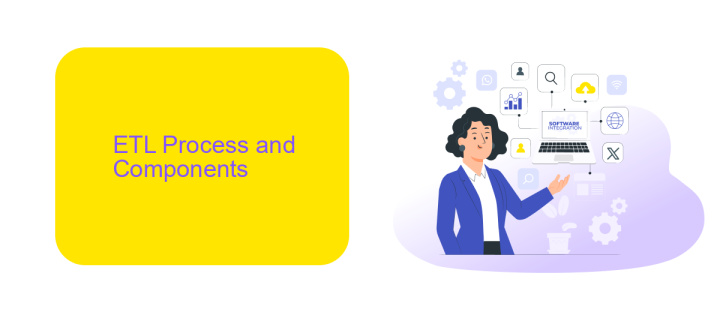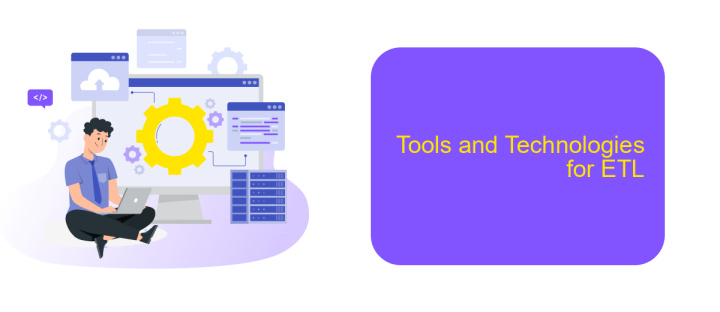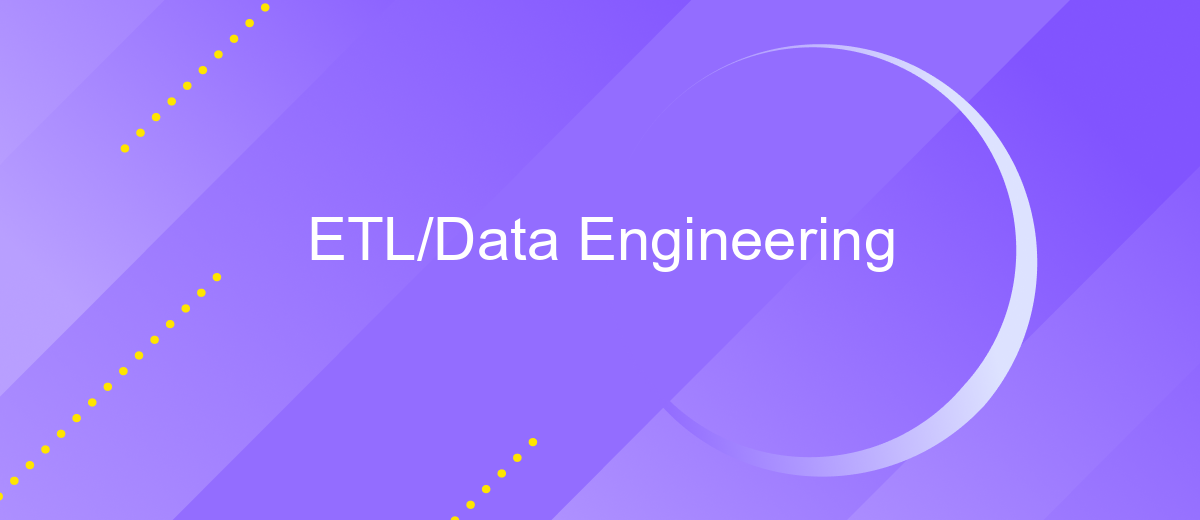ETL/Data Engineering
In today's data-driven world, ETL (Extract, Transform, Load) processes and data engineering play a crucial role in enabling businesses to harness the power of their data. By efficiently extracting data from various sources, transforming it into a usable format, and loading it into data warehouses, organizations can derive valuable insights and make informed decisions to stay competitive.
Introduction to ETL and Data Engineering
ETL, which stands for Extract, Transform, Load, is a fundamental process in data engineering that involves extracting data from various sources, transforming it into a suitable format, and loading it into a target system for analysis and decision-making. Data engineering, on the other hand, focuses on designing and building systems for collecting, storing, and analyzing data at scale.
- Extract: The process of retrieving data from different sources such as databases, APIs, and flat files.
- Transform: The step where data is cleaned, enriched, and transformed into a format suitable for analysis.
- Load: The final step where transformed data is loaded into a data warehouse, data lake, or other storage systems.
Effective ETL and data engineering practices are essential for ensuring data quality and accessibility. Tools like ApiX-Drive facilitate seamless integrations and automate data workflows, making it easier to manage and synchronize data across multiple platforms. By leveraging such services, businesses can streamline their data operations and gain valuable insights more efficiently.
ETL Process and Components

The ETL process, which stands for Extract, Transform, Load, is a fundamental component in data engineering. The extraction phase involves retrieving raw data from various sources such as databases, APIs, and flat files. This data is often unstructured or semi-structured, requiring robust methods to ensure accurate and complete retrieval. Tools like ApiX-Drive can facilitate this process by providing seamless integration with numerous data sources, making it easier to gather and manage data efficiently.
Once the data is extracted, it moves to the transformation phase, where it is cleaned, enriched, and formatted to meet specific requirements. This step may involve data normalization, deduplication, and validation to ensure data quality. Finally, the transformed data is loaded into a target system such as a data warehouse or data lake, where it can be accessed for analysis and reporting. Effective ETL processes ensure that data is accurate, consistent, and readily available for decision-making, playing a crucial role in the overall data strategy of an organization.
Data Engineering Principles and Best Practices

Data engineering is a critical aspect of modern data management, focusing on the design and implementation of systems that collect, store, and analyze data efficiently. To ensure robust data pipelines, engineers must adhere to several key principles and best practices.
- Scalability: Design systems that can handle increasing volumes of data without compromising performance.
- Reliability: Implement fail-safes and redundancy to ensure data availability and integrity.
- Automation: Use tools like ApiX-Drive to automate data integration, reducing manual intervention and minimizing errors.
- Data Quality: Regularly validate and clean data to maintain accuracy and consistency.
- Security: Protect data through encryption, access controls, and regular audits.
By following these principles, data engineers can build efficient, scalable, and secure data systems. Tools like ApiX-Drive facilitate seamless integrations and automation, further enhancing the reliability and efficiency of data pipelines. Emphasizing best practices in data engineering ensures that organizations can leverage their data assets to drive informed decision-making and innovation.
Tools and Technologies for ETL

ETL (Extract, Transform, Load) processes are essential for data engineering, ensuring that data is accurately transferred, transformed, and loaded into data warehouses. To achieve this, a variety of tools and technologies are available, each offering unique features and capabilities.
Choosing the right ETL tool depends on your specific requirements, such as data volume, integration needs, and budget. Some tools are designed for simple data tasks, while others are built for complex, large-scale data engineering projects. Below are some popular ETL tools and technologies:
- Apache NiFi: A powerful, easy-to-use system to process and distribute data.
- Talend: An open-source tool that provides extensive data integration and transformation capabilities.
- Informatica PowerCenter: A comprehensive data integration solution for enterprise-level data management.
- ApiX-Drive: A service that simplifies the integration of various applications and automates data workflows.
- Microsoft SQL Server Integration Services (SSIS): A platform for building enterprise-level data integration and transformation solutions.
By leveraging these tools, data engineers can streamline the ETL process, improve data accuracy, and ensure timely data availability. Selecting the appropriate tools and technologies is crucial for building efficient and scalable data engineering pipelines.
- Automate the work of an online store or landing
- Empower through integration
- Don't spend money on programmers and integrators
- Save time by automating routine tasks
Real-World Application and Case Studies
In the real world, ETL (Extract, Transform, Load) processes are crucial for businesses to consolidate data from various sources, enabling comprehensive analysis and informed decision-making. For instance, a retail company might use ETL to integrate data from online sales, in-store transactions, and customer feedback systems. By transforming this data into a unified format, the company can gain insights into customer behavior, optimize inventory, and improve marketing strategies.
One notable case study involves using ApiX-Drive, a service that facilitates seamless integration between different applications and data sources. A financial institution implemented ApiX-Drive to automate the extraction of data from various banking systems and third-party financial platforms. By streamlining the ETL process, they were able to reduce manual data entry, minimize errors, and ensure real-time data availability for their analytics team. This integration significantly enhanced their ability to monitor financial health and compliance, ultimately driving better business outcomes.
FAQ
What is ETL in data engineering?
Why is ETL important for businesses?
What are some common challenges in ETL processes?
How can automation improve ETL processes?
What skills are essential for a data engineer working with ETL?
Routine tasks take a lot of time from employees? Do they burn out, do not have enough working day for the main duties and important things? Do you understand that the only way out of this situation in modern realities is automation? Try Apix-Drive for free and make sure that the online connector in 5 minutes of setting up integration will remove a significant part of the routine from your life and free up time for you and your employees.


